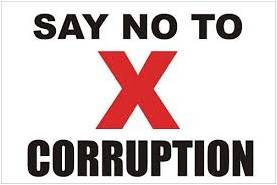
Thailand’s Constitutional Drafting Committee is looking to establish a new administrative court unit to deal specifically with corruption cases. Meanwhile, the Thai cabinet approved last week a project to prevent corruption in government procurement.
The Administrative Courts were set up in 1997 to deal with cases between the State and private citizens.
In its 2014 assessment, Corruption watch-dog Transparency International ranked Thailand 85 out of 175 countries on its corruption perceptions index.
Emphasizing the importance of the matter, Prem Tinsulanonda, President of the Privy Council, which is the advisory body to His Majesty the King, said at the National Defence College that people acting corruptly had to be dealt with “swiftly, severely, and decisively.” Prem’s comments were subsequently taken up by Borwornsak Uwanno, chairman of the Constitution Drafting Committee.
Recommendations also include those cases in which an individual faces losses to state coffers or property, so that the court could then order compensation be made to cover the damages. The courts’ procedures would also vary from other judicial procedures, such as the Supreme Criminal Division for Office Holders, where a defendant is only guilty when proven “beyond reasonable doubt”.
Borwornsak told local media traditional courts have adhered to the principle of “letting 10 guilty people off the hook is better than punishing one innocent person”. He said under the legal guidelines, the National Anti-Corruption Commission, the State Audit Commission and the public could petition the court directly. Borwornsak also added that the court could issue a verdict based on sufficient evidence and suspicion of an irregularity. “This will plug loopholes often found in corruption cases,” he was reported as saying.
At the same time, political office holders and officials are able to prove that despite the policies leading to damage to the state, they were unaware of the potential risk to the country, and they may avoid penalties.
However, analysts say a key challenge lies in ensuring cooperation between the relevant judicial agencies to press forward with the cases.
In another development to address corruption in the government sector, the Thai cabinet last week approved in principle a proposal by the Ministry of Finance on the cooperative project for prevention of corruption in government procurement. A collaboration among the government sector, the private sector and other sectors in Thailand – the project involves building of a network to jointly create standards for government procurement in a transparent manner. The private sector and general public will be engaged in monitoring of government procurement to prevent corruption and misconduct, thereby ensuring efficient use of state funds and resources.




